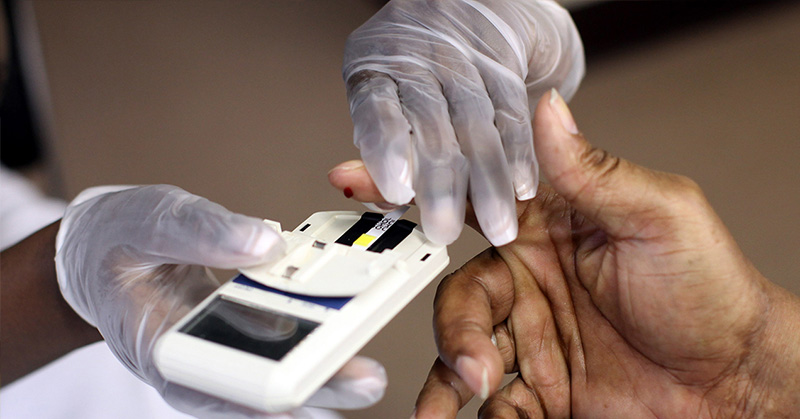People taking medications to help manage type 2 diabetes should talk to their doctor about their risk of a rare genital infection that has been linked to a certain class of diabetes medications.
A new study published in the Annals of Internal Medicine, led by doctor Susan J. Bersoff-Matcha, Christine Chamberlain, PharmD, CDE, and others of the US FDA warned of a link between Fournier’s gangrene and the type 2 diabetes drug type, sodium-glucose cotransporter-2 (SGLT2) inhibitors.
SGLT2 inhibitors are more commonly recognized by their brand names, which include Canagliflozin (Invokana®), Dapagliflozin (Forxiga™), and Empagliflozin (Jardiance™). (1)
What is Fournier’s Gangrene?
Fournier’s gangrene is a serious and sometimes deadly condition in which the tissues around the genitals, perineum, and anus necrotize (die). If not treated promptly, the infection can spread to the legs, stomach, and chest.
Symptoms of Fournier’s gangrene vary but often include: (2)
- Fever
- Pain and swelling in the genitals or anal area
- Unpleasant odor coming from the affected skin tissue
- Crackling sound when touching the affected area
- Dehydration
- Anemia
Related: Help Prevent Diabetes and Balance Blood Sugar with These 10 Foods
What’s the Link Between Fournier’s Gangrene and Diabetes Drugs?
The recent study reviewed the 55 unique cases of Fournier’s gangrene reported to the FDA between March 2013 and January 2019 in which the patients were receiving SGLT2 inhibitors. (3)
Of these cases 100% of the patients had to have damaged tissue surgically removed, 15% required fecal diversion surgery, two cases required an amputation surgery as a result of flesh-eating bacteria. Sadly, 3 of the 55 patients died from the condition and its complications. (3)
The report also described many of the complications resulting from Fournier’s gangrene. Eight patients required a fecal diversion surgery (to be fitted with a colostomy bag) and one patient of the 55 required a lower-extremity bypass procedure because gangrene had spread as far as their toes. (3)
So far, Fournier’s gangrene doesn’t seem to be a condition that chooses favorites. The researchers note that the cases ranged from people aged 33 to 87 years old, involved 39 men and 16 women, and occurred anywhere between 5 days and over 4 years after the patient began taking their diabetes medication. (3)
What are SGLT2 Inhibitors?
SGLT2 Inhibitors are prescribed to help lower blood sugar levels by boosting the amount of sugar your body disposes of via urination. This is accomplished by preventing the kidney from reabsorbing sugar from the bloodstream. While Fournier’s gangrene is a rare side effect, other more common side effects can include: (4)
- Yeast infections
- Urinary tract infections
- Low blood pressure
- Raised cholesterol levels
- Diabetic ketoacidosis
Are Other Diabetes Drugs Safe?
The 2019 research study also identified cases reported to the FDA which linked Fournier’s gangrene to other antiglycemic agents between 1984 and January 2019.
These cases were much more rare compared to SGLT2 inhibitors but included 8 cases linked to metformin, 6 cases linked to insulin glargine, 2 cases linked to short-acting insulin, 2 cases linked to sitagliptin plus metformin, and 1 case linked to dulaglutide. Of these cases, two patients died from complications from the condition. (5)
If you have been prescribed a medication to help manage your diabetes, it’s important to discuss how to balance the pros and cons of your prescription and its potential risks or side effects with your medical care provider. If you’re concerned, you can specifically ask your doctor about your risk level for Fournier’s gangrene, as well as suitable holistic or complementary approaches to managing your diabetes.
Disclaimer: This information is not intended to be a substitute for professional medical advice, diagnosis or treatment and is for information only. Always seek the advice of your physician or another qualified health provider with any questions about your medical condition and/or current medication. Do not disregard professional medical advice or delay seeking advice or treatment because of something you have read here.

